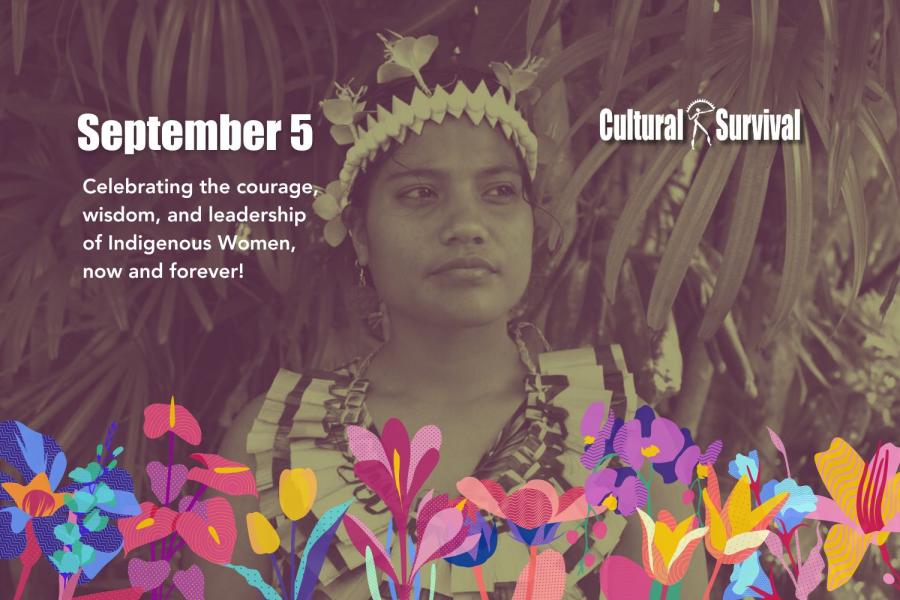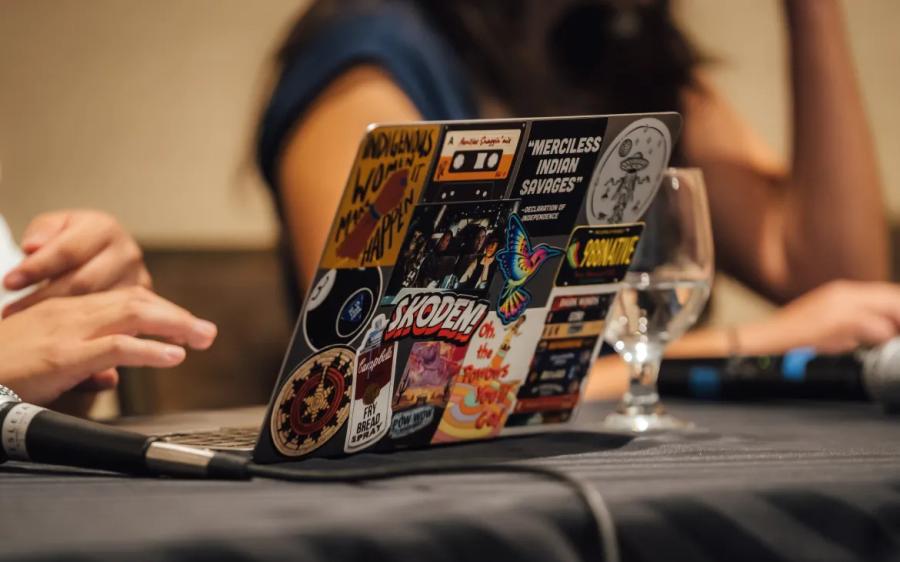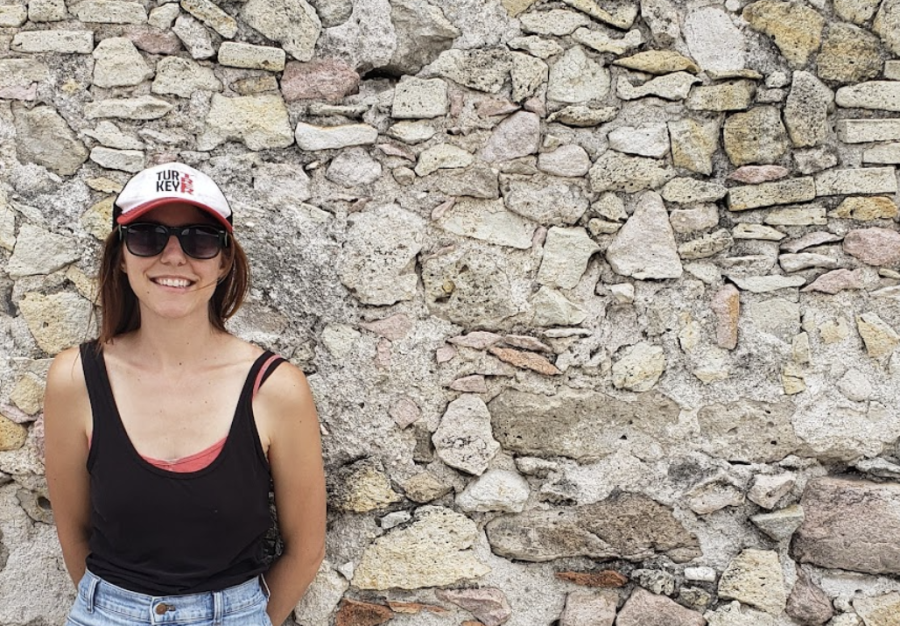“With the climate in crisis, we are facing some dire circumstances going into the future. It’s a wild time to be alive. The problems we are facing are so complex and connected that a holistic way of addressing them is the only way forward. And that’s what I see in many Indigenous cultures. Given my role in this life, I am listening and trying my best to be a messenger.”
—Sonja Swift
At just 25 years of age, Sonja Swift has had unique opportunities to hear the voices of Indigenous people, and she feels an equally unique responsibility to carry their voices into the world of privilege into which she was born.
With her younger sister, Karen, Sonja forms the third generation of a philanthropic family. She has wrestled with the emotional baggage and challenges of inherited wealth and come out as a strong advocate for a new paradigm of philanthropy. As a board member of her family’s foundation and as a staff member of Resource Generation, a network of young people with financial wealth who believe in social justice, Sonja is bringing a more holistic worldview—the worldview of Indigenous Peoples—into the world of philanthropy. She started by listening.
“It was Martin von Hildebrand who gave me my first real opportunity to listen and learn in the Colombian Amazon,” Sonja remembers. For 35 years, von Hildebrand has collaborated with Indigenous Peoples of the Colombian Amazon as an independent researcher, as an appointed official of the Colombian government, and, most recently, as director of the nonprofit organization Gaia Amazonas. When von Hildebrand met Sonja, he sensed that she would be a good listener. He invited her to visit the Indigenous communities on one of the rivers where Gaia Amazonas is working. “Not everyone is right for that kind of experience,” he said, “but Sonja is made out of the right material. So I said, ‘Come and stay for a couple months and see what you learn.’”
Sonja joined a group of Gaia Amazonas advisors who spent two months traveling up the Pirá Paraná River, visiting Indigenous communities. “I learned so much there with them about another rhythm of time, ceremony, stories, and sacred sites, among other things,” she recalls. “They’ve accomplished a great deal since the missionaries left. Now they are managing their lands and resources again, overseeing their schools and health programs, all guided by their traditional knowledge.” She says that she was honored to meet Roberto Marin, a Barasano Indigenous leader who has been extraordinarily effective in gaining state recognition of Indigenous governance structures in the Pirá Paraná region. As the son of a shaman, Marin is completely committed to the Indigenous worldview, and with the support of Gaia Amazonas he skillfully negotiated contracts with Colombian government agencies that enable the Indigenous Peoples of Pirá Paraná to run their own schools, health services, and forest management programs. Their self-governance model is spreading now into other Indigenous regions of the Northwest Amazon.
Unfortunately, these successes are tempered now with new challenges, as one of their most sacred sites, Yuisi, is threatened by a Canadian mining company. “Yuisi is the origin of life,” explained Marin. “It is our Mecca, the heart of our people.” In pro-mining Colombia, they are working against the odds to protect it.
During her time in the Pirá Paraná, Sonja says she was impressed by the honesty and authenticity of the discussions between the Indigenous people and the Gaia Amazonas advisors. “I realized they were all messengers between their worlds,” she says, “and that I was a messenger, too. I could try to take their stories, their holistic way of thinking, back into the boardrooms of my world. I could open a place at the table so that they can speak for themselves here, so that my peers can listen. Even now, when I am frustrated dealing with this elite world, I think of Roberto Marin and others there, and they are a grounding force for me.”
When she returned from Colombia, Sonja helped the Swift Foundation put together a multiyear funding package for the communities she had visited and arranged for Marin and von Hildebrand to speak about their groundbreaking work at the 2011 International Funders of Indigenous Peoples conference last May. In her work as a part-time staff member of Resource Generation, she reaches out to other young people and encourages them to get involved in their families’ philanthropic activities, large or small. “I’m trying to promote systems thinking, ecological thinking in all our work,” she says, “and I realize that these new ideas are grounded in very old ideas.”
In that regard, Sonja and her sister are working hard to align the Swift Foundation’s investments with its mission by shifting their accounts from corporate banks to community banks and moving investments into microcredit, low-interest-rate loan funds for small farmers, clean energy, and the like. “It’s not just about the 5 percent of our funds that we donate each year,” she says; “it is about stewarding the entire endowment in line with our mission of biocultural diversity and resilience in the face of climate change. If that means we make less money, so be it. It has never made sense to me that foundations give away money to address the unraveling caused by the very corporations they are also invested in.”
Reunited at the 2011 International Funders for Indigenous Peoples conference (IFIP), Sonja, Roberto Marin, and Martin von Hildebrand modeled IFIP’s philanthropic principles of mutual respect, reciprocity, responsibility, and relationships. Von Hildebrand expressed it this way:
“We are all here to do what we can for the world because it’s our responsibility to future generations. We should all sit around the table on equal terms. The people who have the money are not more important than the Indigenous Peoples who are in the forests taking care of them, doing the rituals and whatever is necessary. Money is not the scarcest thing. What is most scarce are people who understand the forest from living in it. Let the people who make money give money. Let the people who can make policy make policy. Let the people who do the work in the field do the work. And let the Indigenous Peoples continue to live in their ways, contributing knowledge that no one else has for the future of this planet.”
Paula Palmer is the director of Cultural Survival’s Global Response program.



